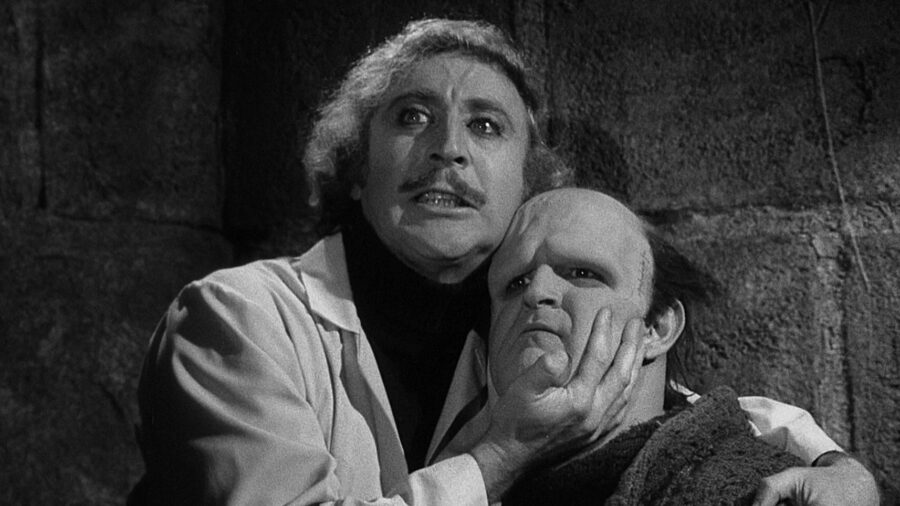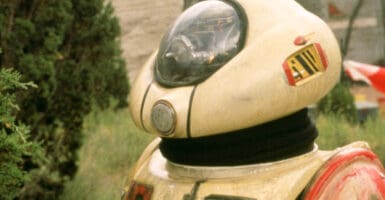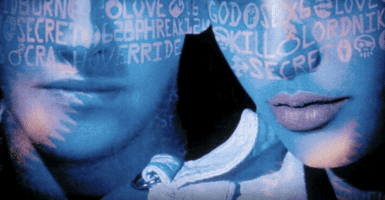The Best Frankenstein Movie Doesn’t Have Boris Karloff
The best Frankenstein movie ever is 1974's Young Frankenstein.
There is no one more associated with Frankenstein and his monster than Boris Karloff. Not director James Whale, whose work became the canonical depiction of the creature, not the many actors to have played the creature since him, including legendary performers like Robert De Niro, Christopher Lee, and Clancy Brown, not even original author Mary Shelley, who was depressingly credited as “Mrs. Percy B. Shelley” in the 1931 Universal film. Strangely, though, the single best Frankenstein movie is one that constantly references Karloff but he had no part in: the 1974 Mel Brooks film Young Frankenstein, which is currently streaming on HBO Max.

Young Frankenstein stars Willy Wonka himself, Gene Wilder (who co-wrote the film with Mel Brooks), not as Victor Frankenstein, but his nephew, Dr. Frederick Frankenstein. Whereas his famous grandfather was a brilliant, but mad scientist who is rumored to have attempted to bring the dead to life, Gene Wilder is content to be a lecturer at a medical school and attempt to get his fiance (the eternally wonderful Madeline Khan) to be physically affectionate in any way whatsoever. Content, that is, unless anyone questions him about Grandfather Frankenstein and his experiments, which will drive him into a rage sufficient to cause him to accidentally stab his own leg.
After a lecture in which Gene Wilder ends up brutally kneeing a test subject in the crotch to demonstrate nerve responses, he is convinced to travel to Transylvania to set his family’s estate in order. As one might expect, he swiftly encounters a hunchbacked man named Igor (Marty Feldman) and eventually discovers the elder Frankenstein’s hidden laboratory and Gene Wilder swiftly succumbs to his destiny to build a monster. Hijinks ensue, legendary character actor Peter Boyle becomes the new creature, and Gene Wilder falls in love with his comely assistant (Teri Garr).

Mel Brooks’ films are famed for their lack of reverence and borderline tastelessness, whether the subject is as weighty as Adolf Hitler, Jesus Christ, or even Star Wars, the true sacred cow of culture. Young Frankenstein is sharply in contrast to that, which is not to say it is not willing to poke fun at the Universal Pictures that inspired it. It is clear that Mel Brooks and Gene Wilder were enormous fans of the original Frankenstein films, and they neatly manage to thread the needle between exaggerating the already histrionic tone of those movies and replicating them.
Of course, recreating Frankenstein’s laboratory is a bit easier when you have access to the actual props and equipment from the 1931 film starring Boris Karloff. Mel Brooks also commits to the bit by presenting the film in black and white; while filmmakers purposedly art things up in the current millennium by going monochrome, in 1974, Young Frankenstein ran the risk of seeming out of touch or cheap if viewers didn’t get the gag. Mel Brooks also utilizes any number of antiquated film techniques, such iris outs and wipe cuts, predicting Francis Ford Coppola’s use of the same in Bram Stoker’s Dracula by decades.
None of this would be more than affectation and slavish devotion to detail, if Young Frankenstein were also not ridiculously funny. In true Mel Brooks fashion, the jokes come fast and quick and without a lot of subtlety (which is overrated, anyway).
Gene Wilder insists that his name is pronounced “FRONK-en-STEEN,” which prompts Igor to insist his is pronounced, “EYE-gor.” A suspicious policeman (Mel Brooks regular Kenneth Mars) has such a thick accent that even people speaking the same language can’t understand him. A bookcase that swivels to reveal hidden passages slams on people repeatedly until the weirdly specific candle mechanism is worked out. Most famously, Gene Wilder and his undead creation perform a lively music number in top hats and tails.
And as much as Mel Brooks and Gene Wilder have a clear love for the Universal Pictures Frankenstein films (which are referenced repeatedly in imagery, scene structure, and actual dialogue), the two were not beyond some off-color sex jokes and dumb puns. Actually, less “some” than “almost constant.”
But the key to Young Frankenstein (and a difference between it and basically all other Mel Brooks movies) is that it never cracks and breaks the fourth wall. Most of the time, Mel Brooks found it impossible not to mug to camera and comment on the fact that all the characters were in a movie, going so far as to have the characters in Blazing Saddles end up at the premiere of the very movie they’re in and characters from Spaceballs grab a VHS to fast forward and peek at the plot. Young Frankenstein never breaks its spell, and that is what makes it perfect.












